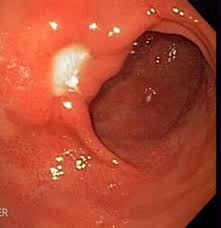Peptic ulcer disease (stomach ulcers)

Peptic ulcers are sores that can affect the lining of the stomach and duodenum (first part of the small intestine). It is often caused by excessive acid in the stomach causing a chemical burn, or medications such as aspirin and ibuprofen (nurofen) and other painkillers. Often times you may have a good reason to be on certain medications and the peptic ulcers may be a side effect. It is also very common that a bacteria called Helicobacter pylori can cause ulcers.
Symptoms may include:
Treatment includes:
A gastroscopy is often warranted to check how bad the ulcer is and whether it needs treatment or biopsies. A repeat gastroscopy may be warranted to check for healing and to exclude another cause such as stomach cancer.